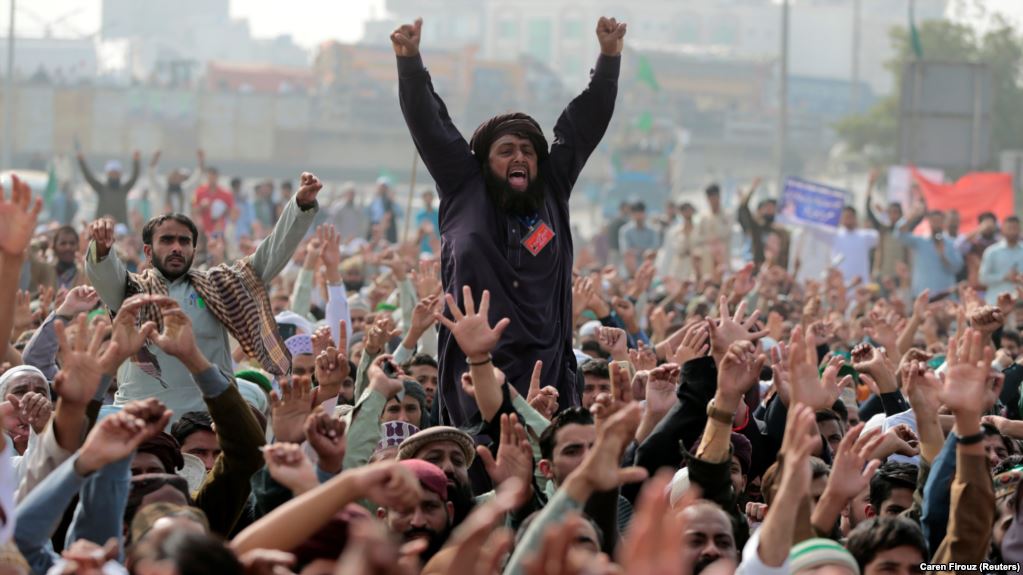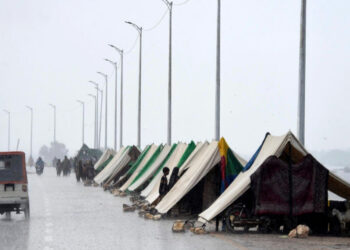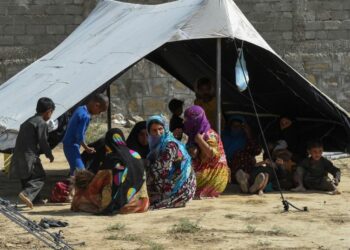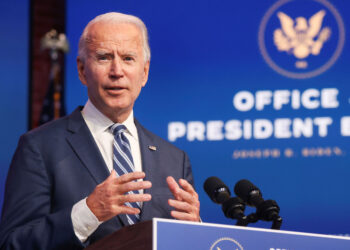Earlier this month, Christians celebrated Holy Week — including Good Friday and Easter — but many Christians in Pakistan could feel more anxiety than joy because of that country’s blasphemy laws.
The most recent case is the acquittal of a mob who burned a Christian couple alive over blasphemy claims. These laws, which criminalize insults to Islam, are often used to justify vigilante violence against Pakistan’s religious minorities.
Despite repeated calls — both international and domestic — to change them, little progress is apparent. There are voices calling for a change in Pakistan, but they face significant obstacles. Until the international community is able to connect with potential reformers in Pakistan, these laws will continue to spawn horrific violence.
Pakistan’s blasphemy laws are a human rights disaster. Initially established by the British colonial authorities, the laws were given more teeth by Zia ul-Haq, the country’s military leader in the late 1970s and 1980s. Since then they have caused significant harm to the country.
One prominent example is Asia Bibi, a Pakistani Christian woman whose neighbors falsely accused her of blasphemy; she has been sentenced to death.
As Farahnaz Ispahani pointed out, these laws often target religious minorities and other disadvantaged Pakistani citizens. These laws also contribute to broader instability; as Nilay Saiya has found in a scholarly study, blasphemy laws make religious terrorism more likely.
Pakistan’s blasphemy laws are part of broader religious freedom issues in that country. While the state was originally envisioned as a homeland for South Asian Muslims — rather than an Islamic state — governments have grown increasingly close to extremist Islamic movements.
Since ul-Haq’s “Islamization” program, the military has developed ties to Islamist militants and granted these groups, and their supporters, significant latitude within the country. This has led to very restrictive religious policies, including the blasphemy laws and discrimination against Ahmadi Muslims. During my time running the Pew Research Center’s work on religious freedom, we consistently ranked Pakistan as one of the worst offenders.
But there are signs from Pakistan that some want a change. Recently, a Pakistani Senate committee recommended punishment for false blasphemy accusations. This would hopefully deter cases such as those I mentioned above. And Pakistani police recently arrested a man they saw was responsible for spreading false blasphemy accusations against a university student, which resulted in his death. These may seem like isolated examples, but they demonstrate that there are voices in Pakistan that want to reform these laws.
So what should outsiders do?
International criticism should continue, but it’s not enough. Human rights activists, like Amnesty International and Human Rights Watch, frequently criticize Pakistan’s record. And Freedom House released a report specifically targeting blasphemy laws in Pakistan and other countries.
Likewise, the U.S. Commission on International Religious Freedom — a body that advises the U.S. government on religious freedom policy —regularly includes Pakistan on its list of “countries of particular concern.” U.S. authorities followed its guidance this year, calling out Pakistan for its restrictions on religious freedom.
The problem, to be frank, is this isn’t working. Despite the repeated pressure, Pakistan’s policies continue. This is because Pakistan’s political system — with its close ties between extremist Islamist groups and the military — limits the ability of politicians and activists to changes this. As I’ve argued, this is one reason why President Donald Trump’s repeated critiques of Pakistan will likely accomplish little.
We can combine criticism, though, with engagement. There are people in Pakistan who want to change its blasphemy laws. But they face intense social pressure, and potential punishment, against their efforts. Outside observers can help by increasing their capabilities and promoting dialogue with their opponents. There are a few specific ways we could do this.
Non-governmental organizations could bring together reform activists, government officials, and even conservative groups to work out a solution. The Institute for Global Engagement has been doing this work for some time, fighting religious repression by promoting dialogue.
International bodies could reach out to Pakistani legislators trying to reform their religious freedom restrictions (like the Senate committee recommending changes to their blasphemy laws). They could provide them guidance on how to promote reform, and support them in case they experienced backlash. There are networks of parliamentarians who work to advance religious freedom in their respective countries, like the International Panel of Parliamentarians for Freedom of Religion or Belief.
The U.S. government could prioritize supporting these reforms efforts. This is part of the mission of the State Department’s Office of International Religious Freedom. Of course, U.S. support often backfires on its recipients, and the State Department’s mission is currently downplayed in the Trump Administration. But programs focused on capacity building for reformers — rather than pressure on the Pakistani government — may be effective.
Those of us concerned about religious freedom should keep critiquing the horrible blasphemy laws in Pakistan. But outreach and engagement with those in Pakistan who want to change this situation may be even more effective in protecting the rights of Pakistani citizens of all faiths.





















